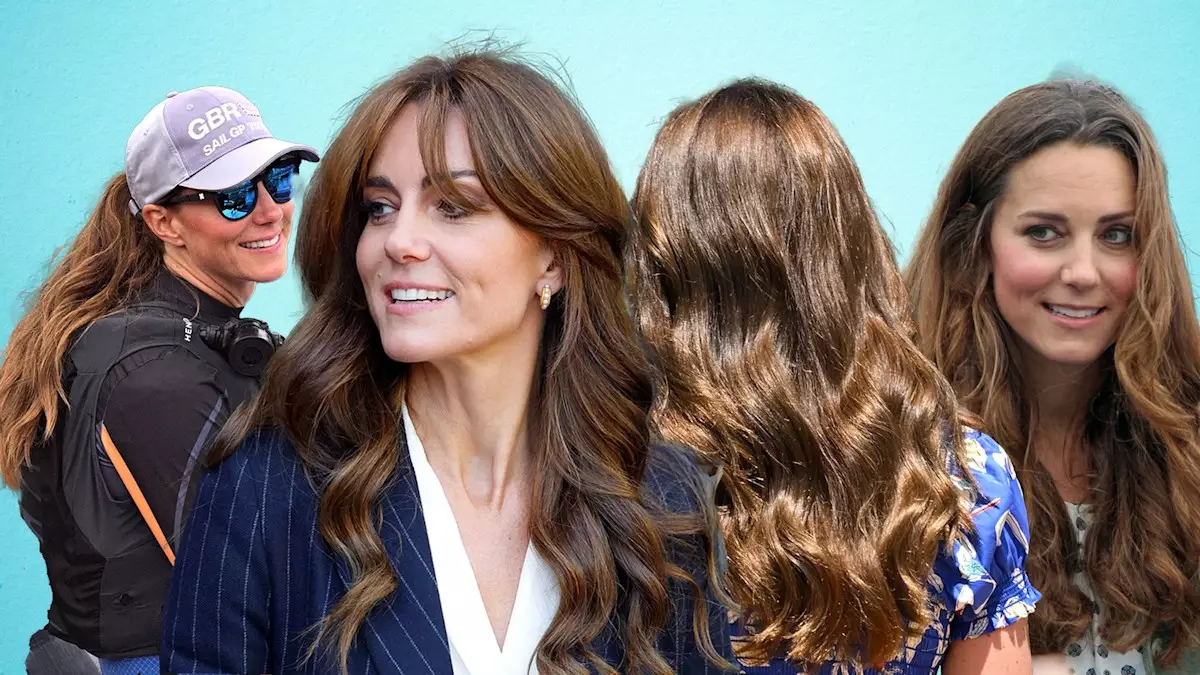When discussing royal beauty, the hair of the Princess of Wales often comes up as a prime example of elegance and allure. With its lush volume, impeccable shine, and expertly styled presentation, her hair serves as a benchmark in the world of beauty. Intrigue surrounds whether her luscious locks are entirely natural or supplemented with hair extensions. This ongoing debate engages hair professionals, beauty enthusiasts, and the curious public alike, eager to solve the mystery behind her stunning mane.
Opinions regarding the Princess’s hair status vary widely among specialists. On one side of the argument is Chris Appleton, renowned for styling Kim Kardashian, who confidently asserts that the Princess of Wales does not use extensions, citing her naturally beautiful hair. His analysis stems from observing the hair’s ends, leading him to believe that they reflect authentic growth. Contrasting this assertion, extension specialist Olia Cutz argues that the possibility of extensions cannot be dismissed so easily. She suggests that state-of-the-art methods, like ultra-bond or tape-in extensions, could be employed discreetly to enhance thickness and length while still appearing entirely natural.
The hair extension conversation highlights a broader theme in beauty: the fine line between authenticity and enhancement. This dialogue raises questions about the pressures faced by those in the public eye, especially in the realm of maintaining an ever-present ideal of beauty.
The Role of Nutrition in Hair Health
Beyond the discussion of hair extensions, the pivotal role of nutrition in achieving gorgeous hair cannot be overstated. Lucia Stansbie, a Registered Nutritional Therapist, emphasizes that optimal dietary choices are integral to the vitality and health of hair. She notes that adequate nutrition may not only affect the external aspects of hair but can also promote its internal health.
Stansbie highlights that incorporating vitamin C into one’s diet can boost collagen production, a vital protein for hair development. She shares various nutrient-rich foods that contribute to luscious locks, encouraging individuals to consider their food choices seriously. However, while a balanced diet is crucial, it’s equally essential to acknowledge the potential impact of hormonal balance on hair health.
Understanding Hormonal Influences on Hair
Hormones significantly influence hair growth and retention. Stansbie raises awareness about various hormonal imbalances that can lead to hair thinning and loss. Conditions such as Polycystic Ovary Syndrome (PCOS) and menopause can lead to drastic changes in hair volume due to elevated androgen levels or hormonal shifts. Symptoms to watch for include excessive hair loss or changes in hair texture.
For individuals navigating hormonal fluctuations, especially postpartum mothers or those experiencing menopause, maintaining a nutrient-dense diet rich in proteins and healthy fats becomes even more essential. Such dietary measures can bolster hair strength and glossiness, combatting the effects of hormonal changes.
Ultimately, achieving hair worthy of royal admiration involves a blend of factors, from dietary choices to expert styling techniques. The Princess of Wales exemplifies the harmonious balance between natural beauty and potential enhancements, showcasing that stunning hair can indeed be nurtured. By understanding the complexity of hair health—considering both nutrition and hormonal balance—one can embark on their own journey toward achieving beautiful, healthy locks that rival even royal standards.


Leave a Reply